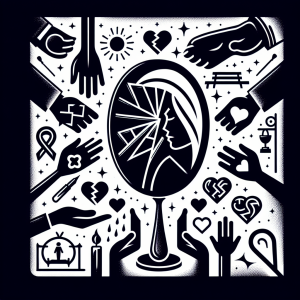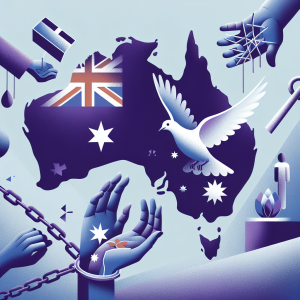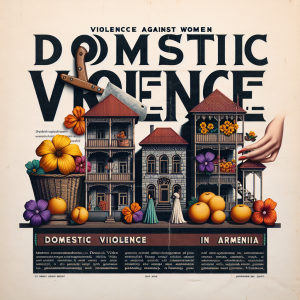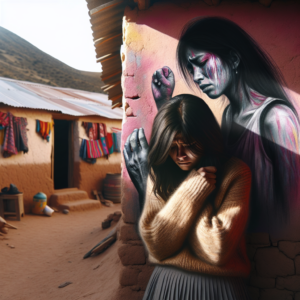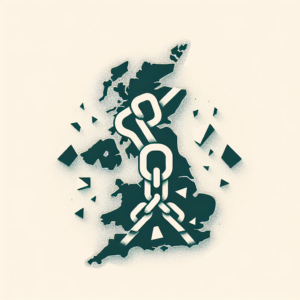#MeToo
Grasping the Severity of a Hidden Crisis
Beyond the vibrant life of urban centers and the tranquility of rural areas, there lurks a daunting reality within the United Kingdom: the issue of violence against women. This matter is often only quietly mentioned and not tackled with the level of immediacy it critically needs, embedding itself into society’s framework, thus becoming an epidemic that stays mostly out of sight. The core of this crisis is not just the violent acts but also the societal norms and systemic barriers that sustain the silence and suffering of women.
Shocking Figures
To grasp the magnitude of this problem, examining the statistics is essential. These figures reveal just a fraction of the hidden anguish and trauma. Current studies and reports show:
- Around one in three women in the UK will suffer some form of physical or sexual abuse in their lifetime.
- Nearly 16% of all violent crime in the UK is domestic violence, though it is the least reported to law enforcement.
- In England and Wales, an average of two women are murdered each week by a current or former partner.
Yet, these numbers fail to fully capture the fear, shame, and isolation experienced by survivors.
The Woven Silence in Our Culture
One significant hurdle in addressing this violence is the entrenched cultural norms that encourage silence. Women are often conditioned to endure their pain silently, put family peace above their safety, and worry about the stigma of being a victim. Furthermore, the institutions that should offer protection and assistance often do not, leaving many women feeling deserted and caught in abusive cycles.
Notable authors and activists have long criticized this silence and its harmful effects. As Rebecca Solnit succinctly puts it, "Violence is one way to silence people, to deny their voice and their credibility, to assert your right to control over their right to exist." This sentiment reflects the ordeal of numerous women whose stories and voices are belittled or ignored, prolonging their trauma and isolation.
Beacons of Hope: Advocacy and Progress
In the midst of despair, numerous organizations and individuals are dedicated to bringing this matter to light and advocating for change. Their work emphasizes supporting survivors, advocating for systemic changes in legal and societal frameworks, and raising public awareness about the vital need to oppose violence against women.
A leading advocate for change, Nada Al-Ahdal, a human rights activist, passionately describes the crucial role of activism: "In the shadows of our societies hide the untold stories of countless women, silenced by fear and tradition. Yet, speaking out against injustice lights a spark of change that can brighten the deepest corners of oppression." – Nada Al-Ahdal @nadalahdal
Strategies for Transformation
Confronting this silent epidemic necessitates a comprehensive strategy involving all societal sectors. Here are some approaches to foster change:
-
Educating the Public: Increasing awareness of the scope and effects of violence against women is critical. Informational campaigns can challenge damaging stereotypes and the stigma that perpetuates victim-blaming and silence.
-
Enhancing Survivor Support: Improving and broadening the accessibility of support services, such as shelters, help lines, and counseling, can offer crucial help to survivors. These services need to be inclusive and reachable for all women, no matter their situation or identity.
-
Reforming Laws and Policies: It’s essential to create and apply laws that protect women from violence, ensure justice for survivors, and make perpetrators accountable. Reforming the criminal justice system to be more sensitive to survivors’ needs is also necessary.
-
Mobilizing Communities: Activating community involvement in discussions and actions against violence can drive significant change. This includes challenging and shifting the harmful gender norms and behaviors that underpin violence against women.
- Embracing Solidarity and Intersectionality: Acknowledging the intersections of gender, race, socioeconomic status, and other identities is crucial in tackling violence against women. Unity among movements and an intersectional approach can ensure no woman is left behind in the struggle against violence.
In essence, the silent epidemic of violence against women in the UK is a deeply entrenched crisis that calls for collective action and systemic reform. It’s time for society to break the silence, challenge existing norms, and decisively act to safeguard and empower all women. Through sustained advocacy, support, and education, there’s hope for a future where women can live without fear and violence. Though the journey is long and challenging, it’s a necessary path we must walk together to achieve safety, justice, and equality for all women.
#NadaFoundation
#domestic_violence
#Nada_Foundation
#NadaAlahdal
#Silent #Epidemic #Violence #Women #Persists
the-silent-epidemic-how-violence-against-women-persists-in-the-uk





